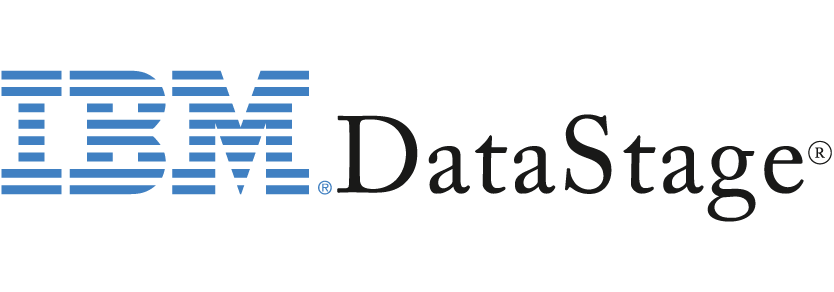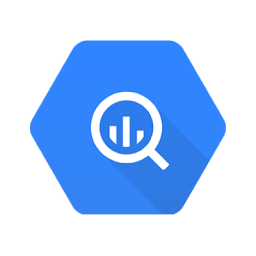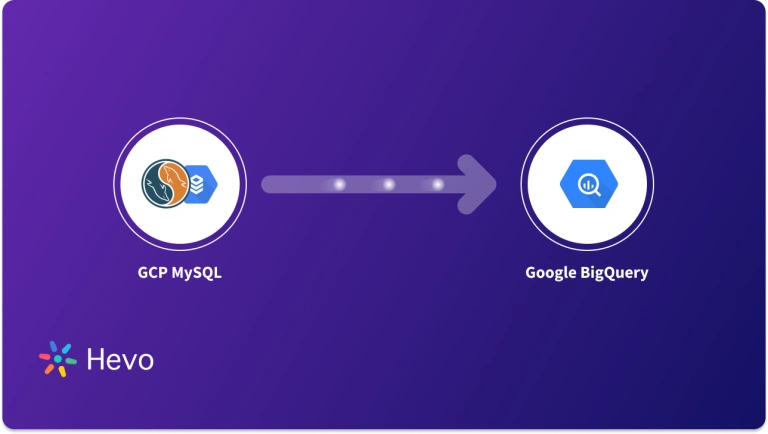 Key Takeaways
Key TakeawaysHere are the top 5 BigQuery ETL tools, see all 10 inside the article:
1. Hevo Data – No-code, real-time pipelines with auto schema mapping and built-in transformations.
2. Google Cloud Dataflow – Serverless batch & streaming ETL with autoscaling and prebuilt transforms.
3. Google Cloud Data Fusion – Drag-and-drop, fully managed CDAP-based pipelines with enterprise security.
4. Apache Spark – High-performance, in-memory ETL via distributed processing and BigQuery connector.
5. Talend – Drag-and-drop studio generating Java code, with robust BigQuery connectivity.
As your business scales, so does the complexity of your data. Raw data keeps pouring in from marketing tools, CRMs, sales tools, internal databases, and so forth. For teams using Google BigQuery as their data warehouse, the challenge isn’t just storing data – it’s making it usable.
That’s where ETL (Extract, Transform, Load) tools come in. Without a robust ETL setup, teams often struggle with delayed insights, inconsistent reports, and hours wasted in manual data prep.
BigQuery ETL tools simplify and automate this entire process, helping you connect data sources, clean and enrich your data, and load it into BigQuery in near real-time. This blog walks you through the best ETL tools for BigQuery and compares them for your understanding.
Table of Contents
What is BigQuery?
BigQuery is a serverless, scalable, cloud-based data warehouse provided by Google Cloud Platform. It is a fully managed warehouse that allows users to perform ETL on the data with the help of SQL queries. You can unleash the power of SQL and the performance and scalability features of Google Cloud Platform to perform ad-hoc analytics on your data. BigQuery can load a massive amount of data in near real-time.
Why Are ETL Tools Required for BigQuery?
ETL (Extract, Transform, Load) tools are essential for getting your data into BigQuery in a clean, organized, and usable format. They help streamline the data journey from raw input to valuable insights.
Here’s why they matter:
- Data transparency and compliance: ETL platforms often include data lineage and audit features, so you can trace every transformation step and stay on top of governance or compliance needs.
- Data integration and consistency: ETL tools bring data from various sources, such as databases, APIs, and apps, into one place, ensuring everything is consistent and properly formatted before hitting BigQuery.
- Time and effort savings: By automating repetitive tasks, ETL tools reduce manual work for you and your team, so you can focus more on analysis instead of managing pipelines.
- Scalability for growing data: Whether you’re dealing with gigabytes or petabytes, ETL tools scale easily to handle large and complex datasets without slowing things down.
Leverage BigQuery’s features like machine learning, search, geospatial analysis, and business intelligence by migrating your data to it using Hevo. Skip long and tedious manual setup and choose Hevo’s no-code platform to:
- Migrate your data to BigQuery to visualize and analyze it using BigQuery analytics.
- Transform and map data easily with drag-and-drop features.
- Real-time data migration to leverage AI/ML features of BigQuery.
Try Hevo and discover why 2000+ customers like Ebury have chosen Hevo over tools like Fivetran and Stitch to upgrade to a modern data stack containing BigQuery.
Get Started with Hevo for FreeHow to Select the Best Google BigQuery ETL Tools
Here are some factors to help you select the appropriate one from the many available BigQuery tools in the market.
1. Data sources
The greatest data-driven insights should be built on top of your BigQuery data. Tools that don’t offer mission-critical app data integration capabilities won’t give your team the 360-degree perspective they require.
2. Extensibility
Seek a solution that can expand with you and support the data pipelines you now use. Select a BigQuery tool that can accommodate a range of use cases and procedures, as well as the numerous sources and SaaS applications you may require in the future.
3. Customer support
The majority of your data engineering team’s work should be focused on using the data rather than transferring it across locations. The top ETL tools will assist you with this procedure by providing practical guidance.
4. Pricing
Of course, budgets are vital, but for many teams, even more crucial is a pricing model that is simple to comprehend and anticipate. It might be challenging to project expenditures for consumption-based pricing from one billing cycle to the next since they can vary each month.
10 Best BigQuery ETL Tools
1. Hevo Data
Rating: 4.4 (G2)
Hevo Data, a no-code data pipeline, helps you to replicate data from any data source with zero maintenance. You can get started with Hevo’s 14-day Free Trial and instantly move data from 150+ pre-built integrations comprising a wide range of SaaS apps and databases. Using Hevo, you can precisely control pipeline schedules down to the minute.
Hevo not only loads the data onto the desired data warehouse but also enriches the data and transforms it into an analysis-ready form without having to write a single line of ETL code. Its fault-tolerant ETL architecture ensures that the data is handled in a secure, consistent manner with zero data loss.
Check out what makes Hevo amazing:
- Near Real-Time Replication –Get access to near real-time replication on All Plans. Near real-time via pipeline prioritization for database sources. For SaaS Sources, near real-time replication depends on API call limits.
- In-built Transformations – Format your data on the fly with Hevo’s preloaded transformations using either the drag-and-drop interface or our nifty Python interface. Generate analysis-ready data in your warehouse using Hevo’s Postload Transformation.
- Monitoring and Observability– Monitor pipeline health with intuitive dashboards that reveal every stat of the pipeline and data flow. Bring real-time visibility into your ETL with alerts and activity logs.
- Reliability at Scale –With Hevo, you get a world-class fault-tolerant architecture that scales with zero data loss and low latency.
- 24×7 Customer Support – With Hevo, you get more than just a platform; you get a partner for your pipelines. Discover peace with round-the-clock “Live Chat” within the platform. What’s more, you get 24×7 support even during the 14-day free trial.
Hevo Data provides transparent pricing to bring complete visibility to your ETL spending. You can also choose a plan based on your business needs.
Hevo Pricing
Stay in control with spend alerts and configurable credit limits for unforeseen spikes in the data flow. Simplify your Data Analysis with Hevo today!
2. Google Cloud Platform Data Flow
Rating: 4.3 (G2)
Google Cloud Platform Data Flow is a cloud-based data processing system with the capability to process batch and real-time data. It is a serverless and cost-effective solution to process data.
Key Features of Google Cloud Platform Data Flow
Some of the key features of Google Cloud Platform Data Flow are listed below:
- Google Cloud Platform Data Flow has an excellent autoscaling facility that automatically detects the number of workers required to execute the job based on the data volume.
- It offers several useful pre-built transformations that can be plugged into existing ETL logic, and you can also create custom functions to integrate into the flow.
- Google Cloud Platform Data Flow has an SQL engine that lets you use the power of SQL to query the data.
- With DataFlow, you can join the streaming data from Pub/Sub and perform transformations and then load the data to BigQuery for further analytics.
- Data flow provides encryption keys, VPC, private IPs, and other security measures to carry out ETL processing securely.
Google Cloud Platform Data Flow Pricing
DataFlow is billed per second of use of the workers for batch and streaming ETL data. GCP offers free credit worth $300 to try their services. To get details about pricing, you can check their official documentation here.
3. Google Cloud Data Fusion
Rating: 5.0 (G2)
Google Cloud Platform’s Cloud Data Fusion is a newly introduced, powerful, and fully managed data engineering product. It helps users to build dynamic and effective ETL pipelines to migrate the data from source to target by carrying out transformations in between.
Key Features of Data Fusion
Some of the key features of Data Fusion are listed below:
- Cloud Data Fusion shifts the focus from code development and provides an intuitive user interface for users to quickly develop the data pipeline in a drag-and-drop manner.
- Cloud Data Fusion comes with a set of pre-built transformations that you can use to build your pipeline. It also allows you to develop custom transformations by using programming languages.
- It is an open-source tool built on top of CDAP. Hence, significant communities are always working on developing new sets of tools and transformations.
- It offers you to develop internal libraries to store the custom connectors or transformations that you have developed and can be shared, validated, and reused across the organization.
- With IAM, VPC, and Private IPs, it provides enterprise-grade security to your data.
- Cloud Data Fusion has a Comprehensive Integration toolkit that allows you to connect to several legacy sources to perform code-free transformations and load into BigQuery or any other target platform.
Cloud Data Flow Pricing
Cloud Data Flow has two pricing modules named Basic and Enterprise. The basic version starts with $1.80 per data instance per hour, whereas the Enterprise version costs $4.20 per data instance per hour. To get complete details about pricing, you can check the official documentation.
4. Apache Spark
Rating: 4.3 (G2)
Apache Spark is an open-source, lightning-fast in-memory computation framework that can be installed with the existing Hadoop ecosystem as well as standalone. Many distributions like Cloudera, Databricks, and Google Cloud Platform adopt Apache Spark in their framework for data computation.
Key Features of Apache Spark
Some key features of Apache Spark are listed below:
- Apache Spark performs in-memory computations and is based on the fundamentals of Hadoop MapReduce. Due to its in-memory computation, it is 100x faster than Hadoop MapReduce.
- Apache Spark distributes the data across executors and processes them in parallel to provide excellent performance. It can handle large data volumes with ease.
- Apache Spark can effectively connect with legacy databases using JDBC connectors to extract the data, transform it in memory, and then load it into the target.
- Apache Spark can use BigQuery as a source or target to perform ETL by using the BigQuery connector.
- Apache Spark is a completely functional programming, and hence the user needs to be compliant with programming languages.
- Apache Spark works on both batch and real-time data.
Apache Spark Pricing
Apache Spark is free to use. Users can download Apache Spark from here. However, distributions like Cloudera and Hortonworks charge for the support, and you can get detailed pricing here.
5. Talend
Rating: 4.0 (G2)
Talend is a popular tool to perform ETL on the data by using its pre-built drag-and-drop palette that contains pre-built transformations.
Qlik recently acquired Talend, bringing together two powerful platforms to give you smarter, faster access to reliable data. Check this press release if you are curious about Qlick Acquiring Talend.
Key Features of Talend
Some key features of Talend are listed below:
- Talend has an open studio edition for beginners, which can be used without paying any fee. The Enterprise version is known as Talend Cloud.
- Talend has multiple integrations, such as Data Integration, Big Data Integration, Data Preparation, etc.
- Talend has an interactive space that allows drag and drop of various functions (called palette), which features the various ETL operations.
- Talend generates Java code at the backend when you build the Talend job. Hence, it requires users to have a basic understanding of programming languages.
- Talend has excellent connectivity to BigQuery, and you can easily perform transformations in Talend space and then load the data into BigQuery.
- Talend also provides API Services, Data Stewardship, Data Inventory, and B2B.
Talend Pricing
Talend’s base pack starts at $12000 a year and has multiple categories to choose from it. You can get complete information.
6. IBM DataStage

Rating: 4.0 (G2)
IBM DataStage is a BI (Business Intelligence) tool and contains an exhaustive list of connectors for integrating trusted data across various enterprise systems. It can be installed on on-premise architecture as well as an on-cloud system to leverage a high-performance parallel framework.
Features of IBM DataStage
Some key features of IBM DataStage are listed below:
- IBM DataStage has excellent support for Big Data and the Hadoop ecosystem to perform parallel ETL on the data.
- It supports extended metadata management and universal business connectivity.
- It supports batch data and real-time data transformation.
- With the help of connectors, it can connect to BigQuery to perform exceptional ETL on the data.
- Additional storage or services can be accessed without the need to install new software and hardware.
- It provides ETL on the data and solves complex big data challenges.
IBM DataStage Pricing
IBM DataStage comes with various pricing options for on-premise and cloud.
7. Apache NiFi

Rating: 4.2 (G2)
Apache NiFi is an open-source tool that automates the movement of data from source to target. As it is open-source, contributors are continuously developing the libraries and custom transformations to provide seamless ETL/ELT with the data.
Key features of Apache NiFi
Some key features of Apache NiFi are listed below:
- Apache NiFi has a vast library of connectors to connect various sources and also contains pre-built transformations that can be applied to the data on the fly.
- Apache NiFi uses a BigQuery connector for seamless integration with GCP BigQuery.
- Apache NiFi creates flow files by chaining the transformations and then executing the jobs.
- As Apache NiFi is open-source, you can install it anywhere and use it for your ETL purposes. You don’t need to have a Big Data ecosystem to perform ETL.
- Apache NiFi server launches a web-based interface that allows you to create flow designs, control the data, and monitor the jobs.
Apache NiFi Pricing
BatchIQ provides Apache NiFi and integrates it with the Google Cloud Platform Marketplace. More pricing details.
8. Stitch
Rating: 4.4 (G2)
While it integrates with BigQuery, the ETL tool Stitch only provides a small number of transformations. Stitch is a cloud-based ETL solution that eliminates the need to create or maintain APIs and simplifies data replication. It is devoid of several common preload conversions and dashboard creation tools, nevertheless. Users are also unable to construct new transformations or views with it. In order to genuinely work with your data, you must interface with—and pay for—additional systems.
Key features of Stitch
- There are 137 supported data sources.
- A part of the Talend ecosystem that communicates with other platform tools.
- platform with GUI-based transformations that is intuitive.
- Alerts and monitoring are managed automatically.
Stitch Pricing
Stitch has a volume-based pricing structure with a monthly minimum of $100. You can give their 14-day free trial a shot.
9. Apache Airflow

Rating – 4.3 (G2)
The open-source Python ETL tool Apache was originally created by Airbnb, Airflow. It is an open-source platform designed to assist users in authoring, scheduling, and monitoring processes programmatically. Even though Apache Airflow isn’t strictly speaking a Python ETL tool, you may use it to plan, schedule, and keep an eye on Python ETL activities. It’s best to seek another tool if your team doesn’t include any programmers.
Key features of Apache Airflow
- Using ordinary Python capabilities, users may develop ETL workflows using Airflow.
- Google BigQuery connection is made simple with Airflow’s several plug-and-play operators.
Apache Airflow Pricing
Astronomer charges for commercial assistance, whereas Airflow pricing is free and open-source.
10. Fivetran
Rating – 4.2 (G2)
For data engineers, Fivetran provides completely controlled data pipelines. Among data engineers, Fivetran is a well-liked cloud-based ETL solution that is fully managed. Users may easily upload company data into a data warehouse or their preferred BI tool using Fivetran’s numerous connections.
Fivetran has an advanced caching layer that makes it possible to send data over a secure connection. Data scientists may transfer data from its source to its destination with the aid of this method, all without keeping a copy on an application server. However, Fivetran does not allow you to query data within its platform; instead, you can only deal with the data via BigQuery and generate reports using that data.
Key features of Fivetran
- When schema changes occur in the source systems, Fivetran automatically recognizes them and modifies the BigQuery destination model appropriately.
- Fivetran has built-in features for data transformation, including data enrichment and normalization.
Fivetran Pricing
Fivetran charges $1 per credit under the Monthly Active Rows pricing scheme. There’s also a free 14-day trial available.
Conclusion
In this blog post, we provided you with a list of the best BigQuery ETL tools in the market to perform ETL on BigQuery and its features. BigQuery is a powerful data warehouse offered by Google Cloud Platform.
If you want to use Google Cloud Platform’s in-house ETL tools, then Cloud Data Fusion and Cloud Data Flow are the two main options. But if you are looking for a fully automated external BigQuery ETL tool, then try Hevo.
Tell us about your experience of using the best BigQuery ETL tools in the comment section below.
FAQs on BigQuery ETL Tools
1. What are the ETL tools in GCP?
ETL tools in GCP include Dataflow, Dataproc, and Cloud Data Fusion, which help in extracting, transforming, and loading data.
2. Is GCP Dataflow an ETL tool?
GCP Dataflow is an ETL tool that enables real-time data processing and transformation in a serverless environment.
3. What is ETL tool in big data?
ETL tools in big data handle large-scale data processing, moving and transforming data across systems, commonly using distributed computing frameworks.










